A common question I get from chicken owners is how to stop a rooster attack or retrain a rooster if they have become aggressive.
Now, I’m not going to lie. This isn’t the easiest thing to do in the world.
When a rooster attacks, it’s called “flogging” (how’s that for a wonderfully descriptive, not-very-much-fun term).
Roosters CAN be retrained (we’ve had to do it a few times) but it takes some time and, dare I say it, gumption on your part. You need to be vigilant and consistent (while also being compassionate – he IS doing his job after all).
Here’s a video where I explain why roosters attack their people and the best way I’ve found to retrain them: Why Roosters Attack. Also, read on to learn more.
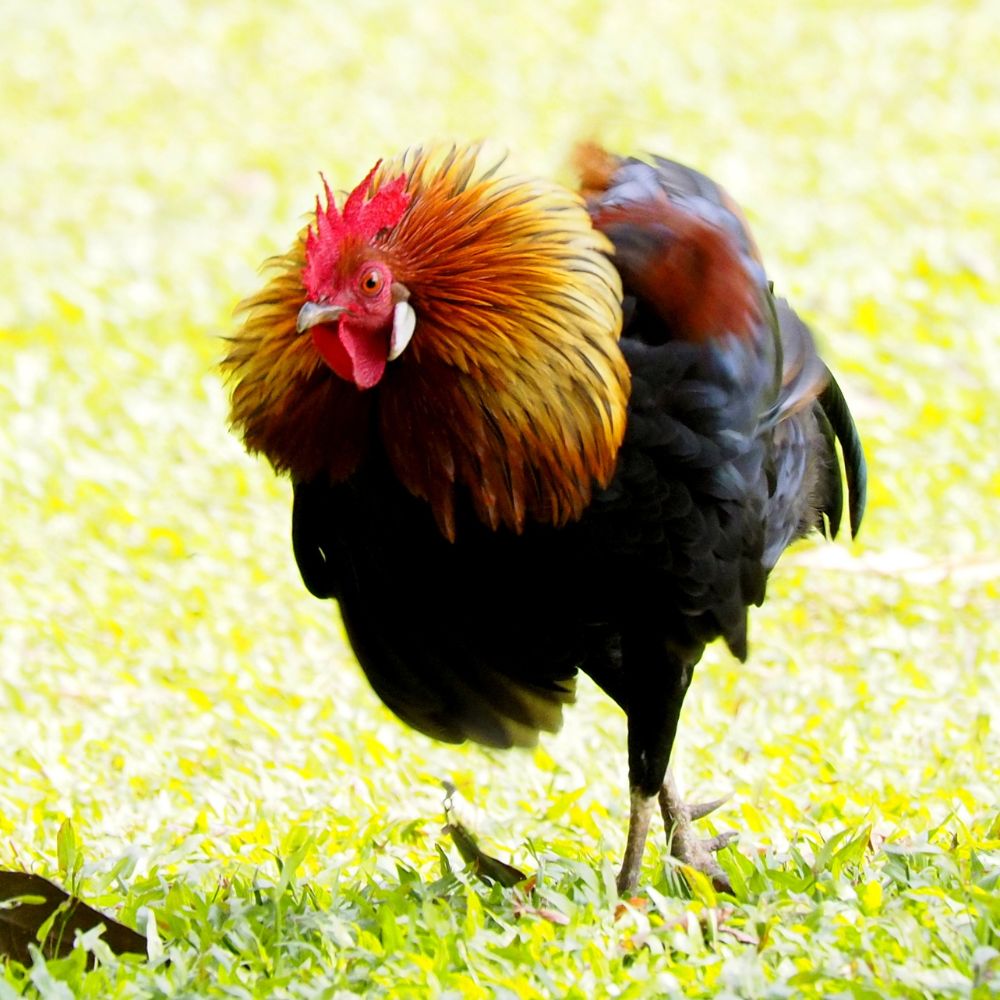
Table of Contents (Quickly Jump To Information)
Why do roosters attack?
In a nutshell, it boils down to “they’re programmed to do it.”
What does this mean? Well, once upon a time, roosters didn’t have people and coops to protect them. They had their wiles and their limited ability to fly. Meaning, they didn’t have many defenses against hungry carnivores.
So to avoid being dinner for some predator, roosters learned they protected their ladies by attacking whatever invades their territory.
Similarly, they learned that if they wanted to be top dog (and reproduce the most), they needed to ward off potential rivals.
In other words, flogging amounts to a rooster’s version of a bar fight. Your floggin’ rooster is programmed to compete for the top of the flock.
He might get worse if he’s been the only rooster and suddenly there are other new faces added to his flock. You might also notice he turns into a jerk when it’s spring and the hens start laying again. In these cases, it might just be a temporary behavior.
And there’s also the possibility that he’s a young rooster just feeling his oats. When he gets knocked down a peg (figuratively speaking), he’ll realize he’s not at the top of the flock.
How to stop this negative behavior?
First, understand that rooster aggression is normal and it’s part of the pecking order as well. But it does need to be kept under control. I explain it best in this video how you need to convince Mr. Rooster that you’re the head of the flock. This isn’t a bad thing – animals like to be led. By leading them, you’re giving them a sense of security.
Wear some boots and take a long stick or broom and gently sweep the rooster away as you enter the coop area. You’re entering his domain, but he needs to understand there should be space between you and him, and that you control that space.
Never hit or hurt the rooster – he’s just doing his job. YOUR job is to just make sure he understands he has his space and you have yours. Your goal is to eliminate his aggressive behavior and being mean to him will not do that.
Additional tips
Don’t be afraid (you are MANY times his size after all) and don’t back down. Don’t show fear and definitely never turn your back, which could undo any work you’ve done with him previously. He’ll think you’re running away or take a prime opportunity to peck you while you’re not paying attention.
While it’s unnerving having a rooster come at you with dominance in mind, he’s not likely to do very much damage (compared to a dog, for example). So even if he makes contact, you won’t be harmed very much. Understanding this gives you the confidence to help him realize his place.
If your rooster has just started attacking or he’s young and testing out his place in the flock on you, you can try separating him from the flock for a few hours to see if that helps settle him. He might just need to be put in “the naughty chair” for a time-out.
You can also offer him treats as a bit of a friendly gesture. He may see you more as a friend than a foe. If you don’t want to encourage him to be near you, then you might want to skip the treats.
If he’s been chasing you or attacking for a while or definitely is old enough to know better, then separating him might not be the best solution or work long-term.
Regardless, if you have a stinker be sure to wear gloves and long pants (jeans are best) when you are in a training session. Remember that roosters have protective spurs.
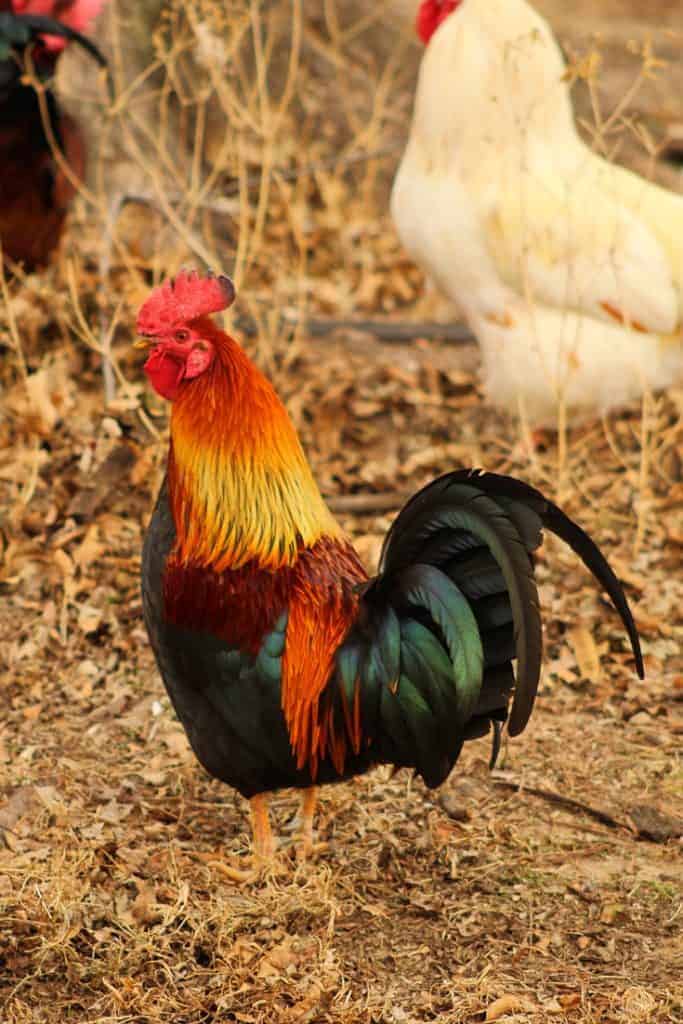
Can you ALWAYS retrain a rooster?
Honestly, in some cases, it won’t work out. I’m not going to sugarcoat it or try to convince you that you should try again and again and again.
I do believe these cases are rare, however, and given enough time, most roosters will come around.
What if you don’t have the time or the rooster is really attacking your family? If you feel it’s not a good situation for you or the rooster, you can always rehome the bird. There’s no shame in making that decision, and you have to do what’s best for your unique situation.
We had one rooster on our farm that was just a real pain. He constantly fought with the other roosters, picked fights, and distracted the roosters from eating their food. He was just plain miserable to be around. If this is your situation, then you need to make the best decision for yourself and your flock.
Summary
By and large, however, we’ve had roosters who were the attacking kind but with the proper training, they stopped being such pains in the butt.
If you pay attention to the early signs of aggression and take the time to do a bit of training, you can usually stop them in their tracks and show them whose the boss. However, it’s possible to have a dominant rooster that simply won’t comply. In that case, it’s okay to try to rehome your roo. Don’t feel bad, it can happen to the best of us!
Maat van Uitert is a backyard chicken and sustainable living expert. She is also the author of Chickens: Naturally Raising A Sustainable Flock, which was a best seller in it’s Amazon category. Maat has been featured on NBC, CBS, AOL Finance, Community Chickens, the Huffington Post, Chickens magazine, Backyard Poultry, and Countryside Magazine. She lives on her farm in Southeast Missouri with her husband, two children, and about a million chickens and ducks. You can follow Maat on Facebook here and Instagram here.


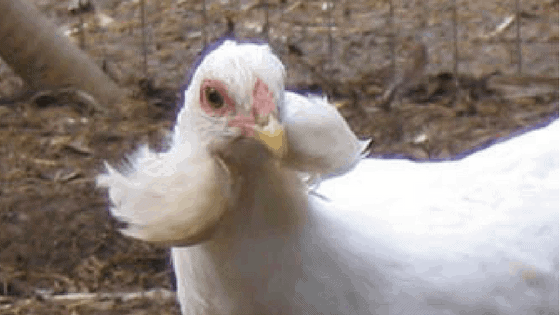


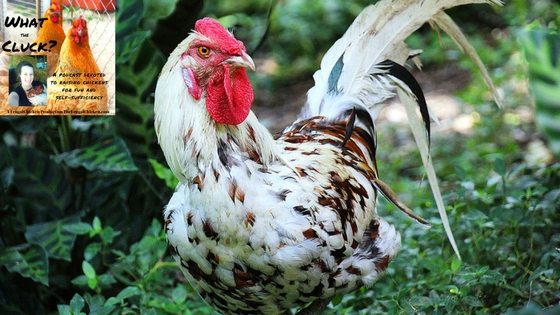
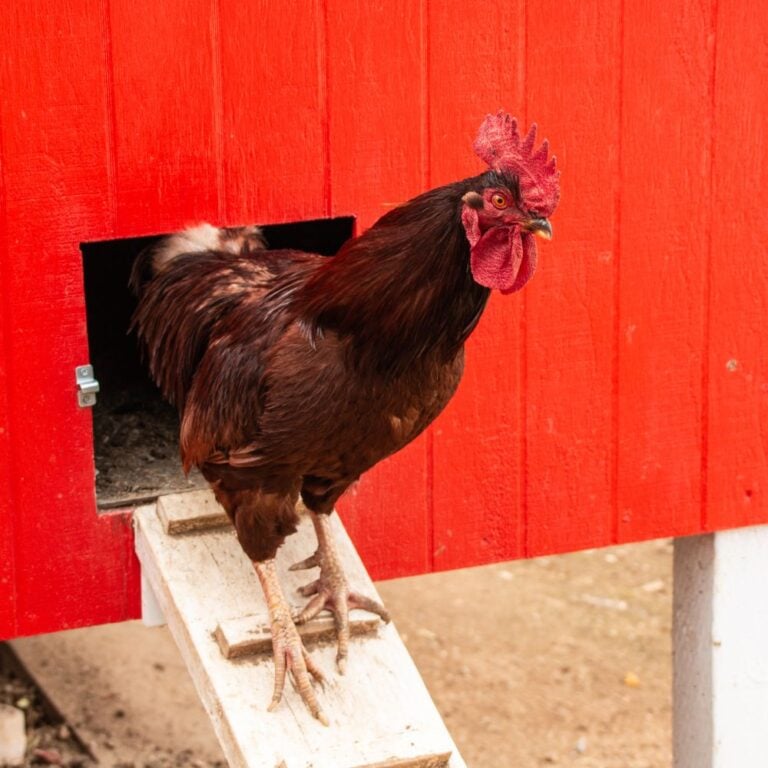
Hi Maat ?
I wasn’t aware that you have autistic children! My daughter Melissa is 25 years old and is also autistic. I only have hens, but when we got our first chicks, I made sure to mark on her calendar when they would be arriving. She has loved them from the beginning, and has made it her job to go check for eggs every day. If there aren’t any she says, “Wait till later for lay an egg comes Mrs. Mom!”. ?
Donna
Can I do the same thing with a Columbian Wyandotte hen that thinks she’s a rooster?
Yes, the same strategy should work!
I found that picking up my rooster and holding him for a minute or two, every time he attacked me worked very quickly in teaching him not to do that.
We have a Sumatra roo, now seven, who was quite aggressive as a young bird and is now a pet. He has never quite given up stalking me, but his attacks are now more his way of checking the status quo. We are devoted to each other.
On the other hand, we have had two instances where the only solution was to cull the offensive roos. As they matured, they became so aggressive towards the hens as well as us, that there was no other option.
Yes, aggressive towards hens is definitely another issue that can happen.
Hi Maat,
I have an autistic child also- a 17 year old son. Anyway. I tried to listen to your Why Roosters Attack video , but there was absolutely no sound. I don;t think it is my computer because I am able to get sound on youtube. Best- Olga
Hi Olga, there should be a sound icon on the video. It’s from Facebook, so the default setting is for the sound to be off.
I was also able to get sound on another video right next to it about lash eggs. Olg a
My Rooster, “Nugget” escaped from the run one day. I got the treat bucket out and tried to shake it and lure him back into the run. As I was shaking the bucket he spurred 2 holes in my hand with lightning fast speed! I geared up and put on gloves and picked him up and returned him to the coop. Needless to say I was upset with him And felt so betrayed because he would eat treats from my hand everyday before that. So we weren’t on speaking terms for a few days, lol. I am now much more cautious around him and I bring a broom with me every time I enter the run. I respect his space, he respects mine and it’s all good now!
I use a rake instead of a broom. I was able to break a rooster by holding him down gently the way they do to the hens. It took about a week but he has learned to keep his distance from me. He still comes at my wife so I will pass this article on to her. Thanks